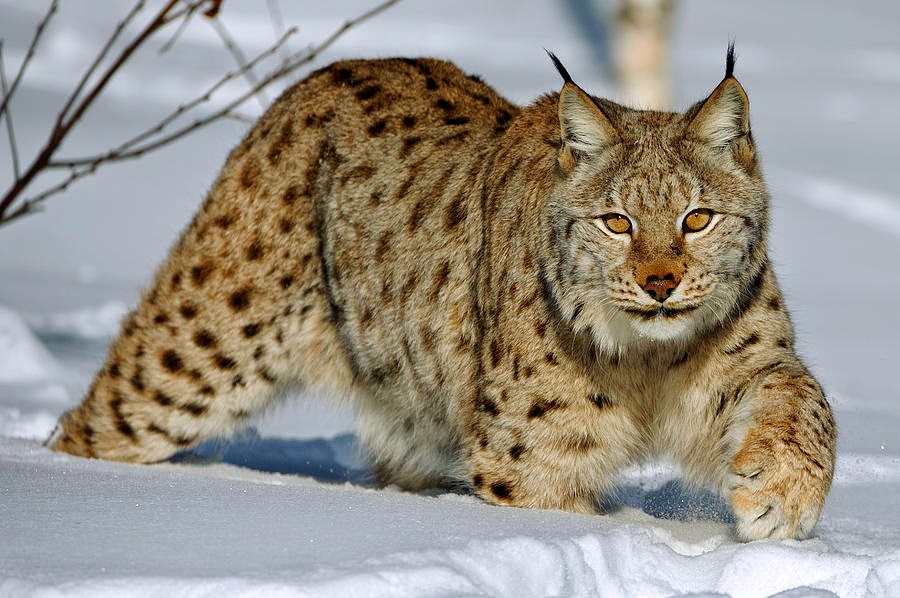
The farming sector has reacted negatively to a proposal to reintroduce the lynx to Kielder forest and the Scottish Borders as a five-year trial.
Lynx UK Trust revealed the Kielder forest and the Scottish Borders as its preferred area for a trial reintroduction of wild cats.
On Sunday 24 July 2016 it was announced that the proposal for a five year trial reintroduction of lynx to the UK was moving to a local area in which lynx might be released in the future.
NFU countryside adviser Claire Robinson told The Sunday Times: "The NFU is not in favour of the reintroduction of lynx - our biggest concern would be the impact on farm animals, especially with lynx preying on lambs.
"Kielder specifically is a remote upland area dependent on sheep farming.
"In the time since lynx last appeared, the environment has changed, our population has increased drastically and on top of this, we do not know how lynx would behave in the current environment.
"As yet Natural England has not received an application for the reintroduction of lynx. The NFU will continue to engage with the licencing body to raise our members’ serious concerns.
"We believe efforts, and finances, would be better focused on retaining current biodiversity."
The NFU responded to an initial Lynx UK Trust consultation back in December 2015, outlining the view that reintroduction programmes are 'expensive, have a high risk of failure and that resources can be used more effectively to improve existing biodiversity'.
'Dismayed'
National Sheep Association (NSA) is stressing the need for the correct steps to be taken and any licence application to be fully and independently consulted on.
Phil Stocker, NSA Chief Executive, says: "We are dismayed that Lynx UK Trust is still pursuing plans to release lynx, as we do not share their belief that the UK has any suitable locations. We are too small an island and too densely populated.
"As Kielder Forest spans the border between England and Scotland, any licence application to release lynx there would have to be approved by both Natural England and Scottish Natural Heritage.
"It would not be appropriate for any trial to go ahead without the express approval of both bodies, which could only happen after a full and independent consultation period that goes over and above what Lynx UK claims to be doing to engage with stakeholders.
"Such consultation would reveal a wide range of very genuine concerns about introducing the lynx.
"These are not limited to sheep, but also the fragile balance of economics, environment and rural society, plus the welfare of the lynx themselves."
